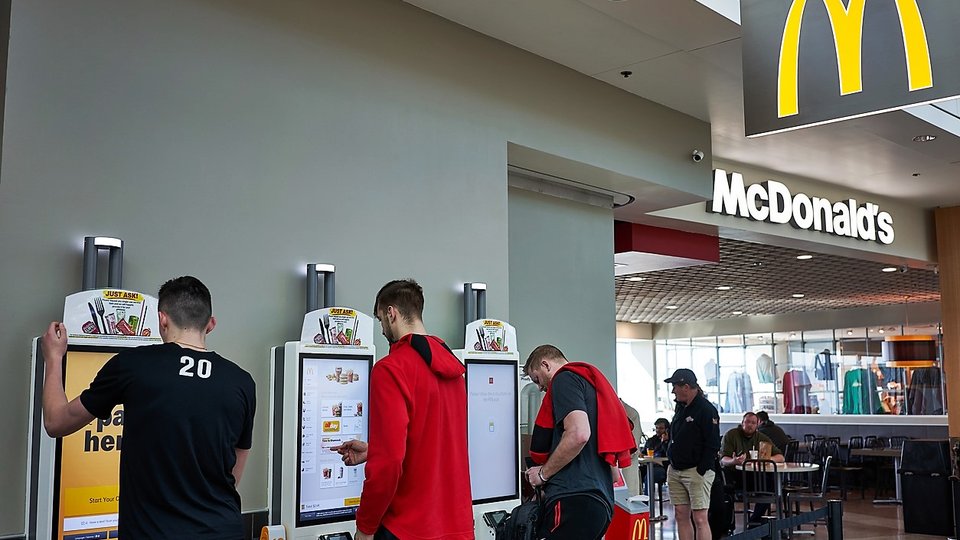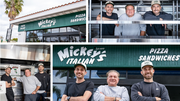Technology
2 things QSR self-service can't do without
Consumers want self-service, but they also want to speak to an employee when necessary, according to the keynote presentation at last weeks Self-Service Innovation Summit.

December 15, 2020 by Elliot Maras — Editor, Kiosk Marketplace & Vending Times
Editor's Note:The following is a shorter version of the original story that ran last week on Kiosk Marketplace.
While self-service has gotten to be old hat for QSR consumers, that doesn't mean those same customers will blindly use these platforms without some reassurances. In fact, the keynote speaker at last week's Self-Service Innovation Virtual Summit, ath Power Consulting Director of Training E.J. Kritz reminded attendees at the inaugural event that customers who use these interfaces need to know two things:
- The transaction is reliable.
- A competent employee is available if they need help.
 |
| Kritz (Provided) |
Kritz keynote address to the two-day event's sizeable audience was built around his company's survey titled, "The Future of the Self-Service Industry." He said the self-service space is growing across business categories, and ath Power Consulting undertook the survey to find out — among other things — just how far consumers want to go with self-service.
"We've been curious about how much consumers want to help themselves, and further, does the industry — all of you — have the same views as does consumers or, to some degree, are your ships passing in the night?" he told the gathering.
The results from the survey showed some key trends in self-service that QSR operators would be wise to remember in their implementation of such technologies at their restaurants, including:
1. Customer trust and listening is essential.
2. People still matter, and self-service actually requires superior staffing.
3. Choice is critical. Respecting the customer preference for self-service versus human interaction is not up for debate.
4. Reliability is non-negotiable.
Kritz offered examples of companies that are employing self-service and paying careful attention to what consumers have told them. The research found, for instance, that hospitality is a major area where consumer preference for self-service varies greatly, Kritz said. While 45% of consumers prefer ordering from a person at a fast food restaurant, that number hits 73% when dining at a traditional dine-in restaurant, he said.
"While self-service is on the rise, it would be irresponsible for anybody to think that people aren't still at play," he said.
He believes that for many companies, the interplay between self-service and employee service has been a challenge. He offered the example of one of his favorite airlines, JetBlue.
Kritz has found its self-check-in kiosks efficient, but he said he is disappointed that its remaining employees are "by far not A-plus players."
"Personally, I'm still looking to be delighted when I travel."
The degree to which a customer wants an employee involved varies significantly among industries, he said.
What role for employees?
Transactional activities like buying movie tickets are categories where consumers prefer self-service. It is important, however, that the machines are reliable and that a well-trained employee within earshot is available when needed.
Has the coronavirus pandemic changed the demand for self-service? In some instances it has, he said, but the need for employees remains important.
He offered the example of interactive teller machine, an ATM that includes a personal interaction. Nearly half (46%) of banking customers would prefer using an ATM to a live teller after the pandemic has run its course, he said.
Vendors must listen to customers
While consumers are becoming more accepting of self-service, there are still some disconnects. For instance, 60% of consumers said making a transaction self-service is at least moderately important, compared to 90% of self-service vendors, who believe it is at least moderately important.
"We believe there is still enough of a gap in the perception of device reliability between consumers and vendors," Kritz said. "Even with that gap, there's room for improvement."
Additionally, only a quarter of consumers said that vending options work very well. Such a finding supports the need for a staff member to assist during a self-service transaction.
"Moving forward, we cannot recommend strongly enough that vendors and businesses use our four key study takeaways when generating and executing a strategy," he said."People, the right people, still matter, and self-service requires superior staffing."
The full report from ath Power Consulting is available at the Networld Media Group online store. It is also available on premium content on sister sites, ATM Marketplace, Kiosk Marketplace and Vending Times.
About Elliot Maras
Elliot Maras is the editor of Kiosk Marketplace and Vending Times. He brings three decades covering unattended retail and commercial foodservice.
 ChatGPT
ChatGPT Grok
Grok Perplexity
Perplexity Claude
Claude








